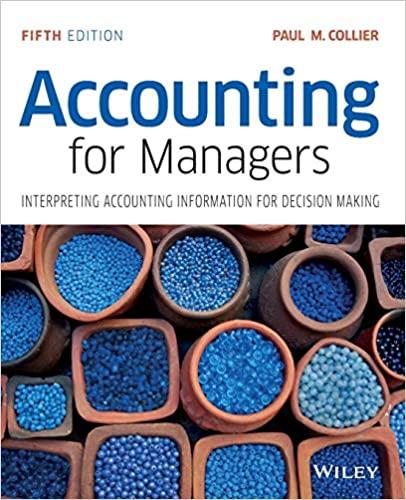Question
Problem 4-14 (LO 2, 3) 80%, equity, several excess distributions, inventory, fixed assets, parent and subsidiary sales. Refer to the preceding facts for Purples acquisition
Problem 4-14 (LO 2, 3) 80%, equity, several excess distributions, inventory, fixed assets, parent and subsidiary sales. Refer to the preceding facts for Purples acquisition of Salmon common stock. On January 1, 2017, Salmon held merchandise sold to it from Purple for $12,000. This beginning inventory had an applicable gross profit of 35%. During 2017, Purple sold merchandise to Salmon for $55,000. On December 31, 2017, Salmon held $10,000 of this merchandise in its inventory. This ending inventory had an applicable gross profit of 40%. Salmon owed Purple $7,500 on December 31 as a result of this intercompany sale. Purple held $16,000 worth of merchandise in its January 1, 2017, inventory from sales from Salmon. This beginning inventory had an applicable gross profit of 30%. During 2017, Salmon sold merchandise to Purple for $35,000. Purple held $20,000 of this inventory at the end of the year. This ending inventory had an applicable gross profit of 35%. Purple owed Salmon $5,000 on December 31 as a result of this intercompany sale. On January 1, 2015, Purple sold equipment to Salmon at a profit of $40,000. Depreciation on this equipment is computed over an 8-year life using the straight-line method. On January 1, 2016, Salmon sold equipment with a book value of $30,000 to Purple for $54,000. This equipment has a 6-year life and is depreciated using the straight-line method. Purple and Salmon had the following trial balances on December 31, 2017: Purple Company Salmon Company Cash 195,400 53,500 Accounts Receivable 140,000 53,000 Inventory 140,000 81,000 Land 100,000 60,000 Investment in Salmon Company 443,600 Buildings 800,000 150,000 Accumulated Depreciation (280,000) (65,000) Equipment 150,000 220,000 Accumulated Depreciation (115,000) (103,000) Goodwill 40, 000 Accounts Payable (25,000) (50,000) Bonds Payable (100,000) Common Stock (100,000) (10,000) Paid-In Capital in Excess of Par (800,000) (90,000) Retained Earnings, January 1, 2017 (510,000) (169,500) Sales (850,000) (500,000) Cost of Goods Sold 480,000 290,000 Depreciation ExpenseBuildings 30,000 5,000 Depreciation ExpenseEquipment 15,000 23,000 Other Expenses 210,000 94,000 Interest Expense 8,000 Subsidiary Income (64,000) Dividends Declared 40,000 10,000 Totals 0 0 Required 1. Prepare a value analysis and a determination and distribution of excess schedule for the investment in Salmon. 2. Complete a consolidated worksheet for Purple Company and its subsidiary Salmon Company as of December 31, 2017. Prepare supporting amortization and income distribution schedules.
URGENT: NEED ANSWER ASAP
PLEASE RESPOND WITH COPY AND PASTE, NOT ATTACHMENT USE ORIGINAL CONTENT NOT USED BEFORE ON CHEGG
PLEASE ANSWER THROUGHLY TO ALL ANSWER TO BEST ABILITES
Step by Step Solution
There are 3 Steps involved in it
Step: 1

Get Instant Access to Expert-Tailored Solutions
See step-by-step solutions with expert insights and AI powered tools for academic success
Step: 2

Step: 3

Ace Your Homework with AI
Get the answers you need in no time with our AI-driven, step-by-step assistance
Get Started


